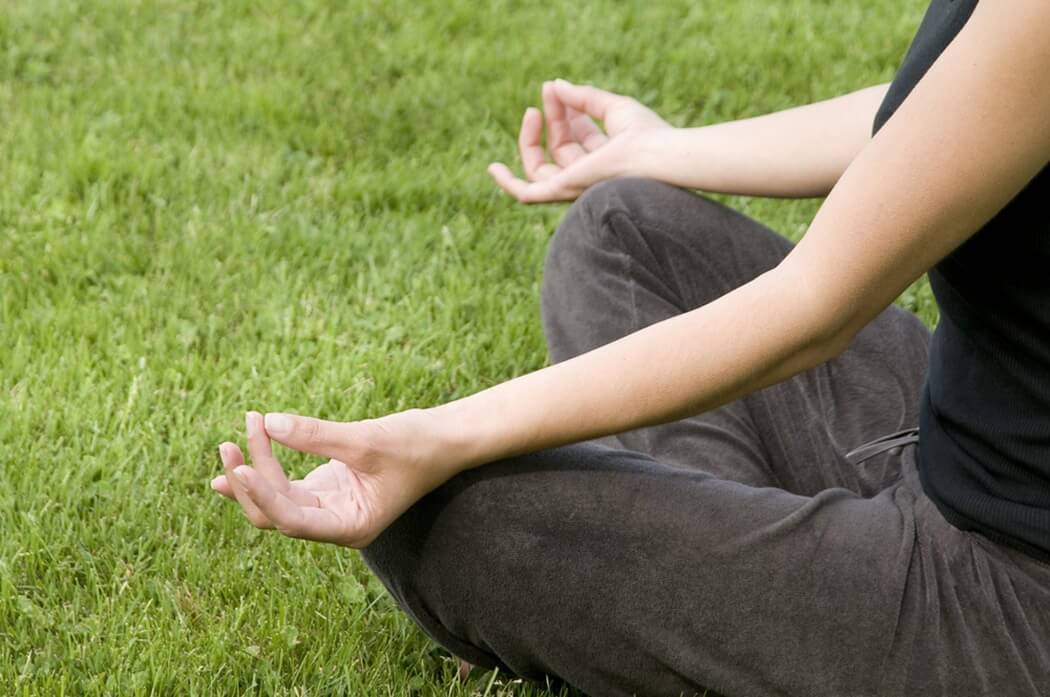Stress Busters
Stress Busters
Feeling stressed? Here, you’ll find plenty of tips to help plan for feeling better.
First, let’s learn more about stress. It’s a natural response when you face a difficult or dangerous situation, or when you feel pressured to do or feel something. Stress is part of life, and it may even help you feel more alert or capable. But it can also feel overwhelming. In this case, your health, wellbeing, relationships, work and enjoyment of life can suffer.
You may be feeling big stresses, such as money worries, the loss of someone you love, or a marriage breakdown. Or you may be feeling smaller stresses, such as a constantly ringing phone, a long trip to work every day, or a grumpy toddler.
And maybe the small stresses add up to being too much, because they’ve been going on for so long, or a lot of them are happening all at the same time.
But you don’t have to let stress rule your life. Whether you feel stressed every now and then, or all the time, you need to work out what’s bothering you and find ways to cope.
Stress isn’t good for you… mostly
You need to know the difference between good stress and bad stress. It sounds strange, but some stress can help you get through a tough situation. When you’re alert and aware of a problem, you have a better chance of tackling it. But other stress is not doing you any favours. It makes you feel uptight and anxious, and it doesn’t leave you alone. Of course, different people feel stressed in different situations. The most common causes of stress are:
- work
- tertiary studies
- relationships
- certain times, such as Christmas and holidays.
Stress is also common among people who live in rural areas. You may feel stress having an impact on your body (rapid heartbeat, sweating, faster breathing, difficulty with digestion) and your mind (negative thoughts such as ‘my blood is boiling’, ‘she is a pain in the neck’, ‘I hate this job’, ‘I’ve had enough’ or ‘I can’t believe what’s happening’). It might also be affecting your everyday life (perhaps you’re arguing more with your family, or you dread going to work). While each of us reacts to stress in different ways, it’s important to deal with any stress that is affecting your health and wellbeing. In other words, if you’re not bothered by long work hours, then that’s fine. But if a work overload is making you lose sleep, feel impatient with your family, or behave in other unwanted ways, then you need to make a change.
Stress can hurt your body and your mind
Think about whether stress is hurting you:
- Is stress affecting your physical health? Is it giving you tension headaches or migraines, messing up your digestion, or leading you to eat or drink more, or smoke?
- Is stress affecting your mental health? Is it bringing on panic attacks, making you fearful, causing irritability, leading you to binge eat or starve yourself, making you struggle in relationships, or making you feel depressed?
Here are more questions that may help you recognise stress:
- Can you switch off when you want to rest? Or can you not stop thinking?
- Are you coping? Or do little things get you down?
- Do you feel mostly calm? Or do you feel irritable?
- Can you enjoy other people’s company, and the things you have always found fun? Or do you feel like being alone more than usual?
- Do you find you can read and work okay? Or is it hard to concentrate?
- Do you feel well in yourself? Or do you have aches and pains that are not related to exercise or illness?
- Are you eating and sleeping normally? Or do you find it harder to eat and sleep well?
If your answers show you are stressed, then it’s time to come up with some stress busters! Remember, if you can learn to manage your stress, then you can avoid more serious illness.
There are many ways to manage stress
The best way to handle stress is different for each person. Look for your body’s warning signs, such as having a headache, grinding your teeth, clenching your jaw or feeling frustrated. And know your stress triggers, such as hunger, tiredness, arguments with your family or friends, certain times of day with your children, or deadlines. Then, work on de-stressing. The good news is that plenty of simple (and free) stress-busting techniques are available:
- Establish regular times for when you eat, sleep, read, exercise, grocery shop and so on. And try to set up a routine for your household, so everyone knows what is happening and when.
- Look after your health, with healthy food, regular exercise and calm times in your day. And avoid using alcohol and other drugs to get through your day.
- Be aware of thoughts that don’t help. Saying to yourself that you can’t cope, or don’t have enough time, or feel exhausted, for example, doesn’t help. Instead, try talking yourself through a tough situation: ‘I’m doing pretty well despite my fear’, ‘I can keep calm’, ‘Everything will be okay’.
- Face whatever worries or scares you. If you don’t like job interviews, for example, try a practice interview with a friend. Or, if you know you’re having trouble paying your mortgage, speak with your bank manager. Sometimes, worrying about a problem is worse than the actual problem.
- Think about breaking a big problem into smaller ones. Look at different ways of tackling each problem, the possible consequences and your best options. In other words, work on your problem solving, and don’t wait for a sudden miraculous answer.
- Write a to-do list. If a task or problem is on paper, then it doesn’t have to be in your head.
- Hang out with people who care about you. Other people can remind you of your own strengths, and listen when you need to ‘download’ your worries.
- Be mindful of how you’re feeling, where you are, and who you’re with. Try to clear your head of thoughts about the past or future, and focus on being in the present.
- Practise relaxing. You can try formal relaxation techniques such as yoga or meditation, or just sit quietly in the park and let your body and mind settle.
- Take time out every day to do something you enjoy (like reading a book, doing a puzzle or listening to music).
Just looking after yourself can also be a great way to tackle stress. A healthy body is a great first step to thinking clearly and feeling better:
- Avoid drugs and alcohol.
- Eat well and regularly.
- Sleep enough to top up your energy.
- Plan to exercise, and stick to the plan.
- Breathe steadily.
Make stress management fun!
Sometimes, the same old approaches don’t seem enough, or don’t inspire you to start dealing with your stress. Why not try some of these stress busters, for a fresh perspective?
- Sweat out your stress with a high intensity workout. Or do the opposite: completely wind down in a tai chi class.
- Spend time with someone who makes you laugh or has plenty of good stories that distract you.
- Meditate, and learn to look at yourself with honesty and compassion rather than judgement and criticism.
- Just stop. In other words, sit or lie on your own, and just breathe.
- Grab some pencils and a colouring book. While you’re colouring in, you are slowing your thoughts and using your creativity.
- Dance around the house to your favourite music. Or listen to music while you work.
- Head outside for fresh air and a close encounter with the natural environment. Look up at the sky, watch for butterflies and lizards, and pick some flowers.
- Visualise yourself somewhere that is idyllic to you, or with someone you love. Think about the sounds, smells and tastes of your perfect place.
- Buy a plant. Simply being around plants is good for your relaxation.
- Wiggle about. Starting with your feet and moving up to your face, try tightening and relaxing your muscles.
- Tune out, or plug in. Turning off your screens and devices can help you switch off your thinking. On the flip side, watching a funny movie or talking to someone on Facetime can help you feel better too.
- Eat a banana or a potato. These foods have potassium, which can improve your body’s energy and recovery.
- Find a repetitive activity, such as knitting, wood carving or making jewellery. The simple act of repeating a skill with your hands can relieve stress.
Note: All content and media on the Sunbury Dental House website and social media channels are created and published online for informational purposes only. It is not intended to be a substitute for professional medical advice and should not be relied on as health or personal advice.
More Wellness Articles
What’s Your Colour Personality?
Ever felt uplifted seeing a colourful rainbow brighten up an otherwise grey sky or watching a spectacular orange sunset…
Physical Activity – How to Get Active When You Are Busy
It’s so easy to put exercise and activity to the bottom of your long to-do list. But being active is one of the most important…
Short Workouts Can Be Good for Your Heart
Exercise is important for heart health. However, do you know how much exercise is enough? It’s recommended that all adults get at least…
Strong Relationships, Strong Health
Throughout your life, the number and strength of your relationships affect your mental and physical wellbeing…













